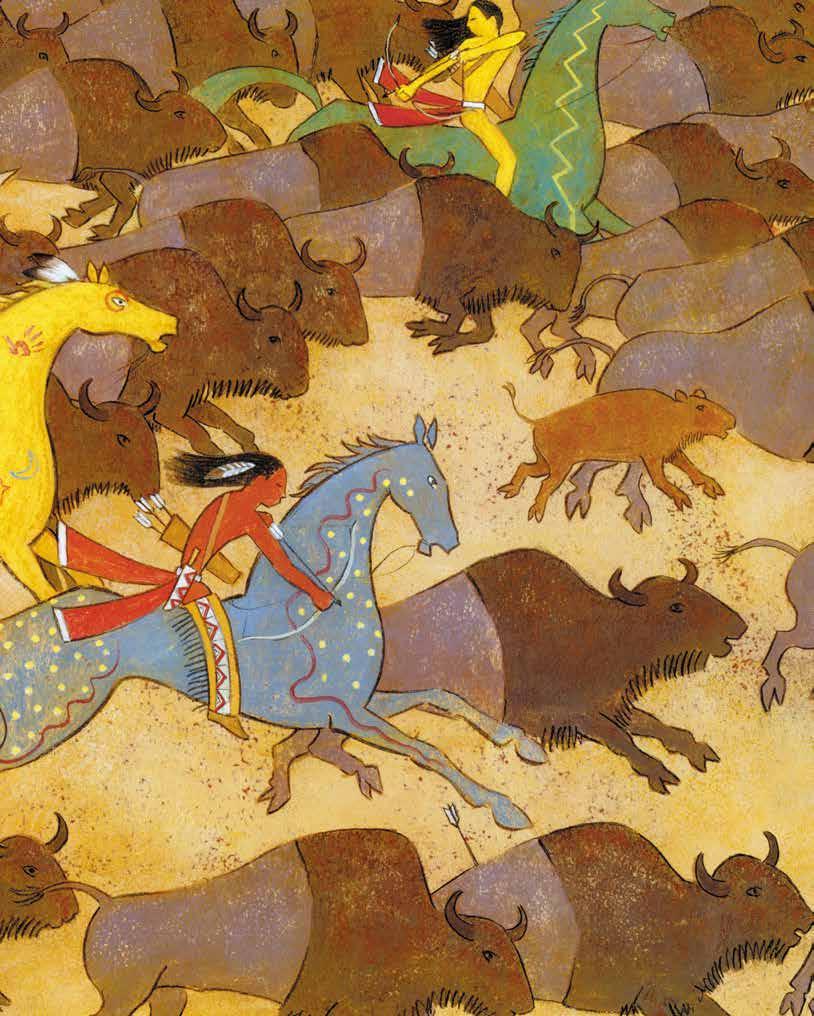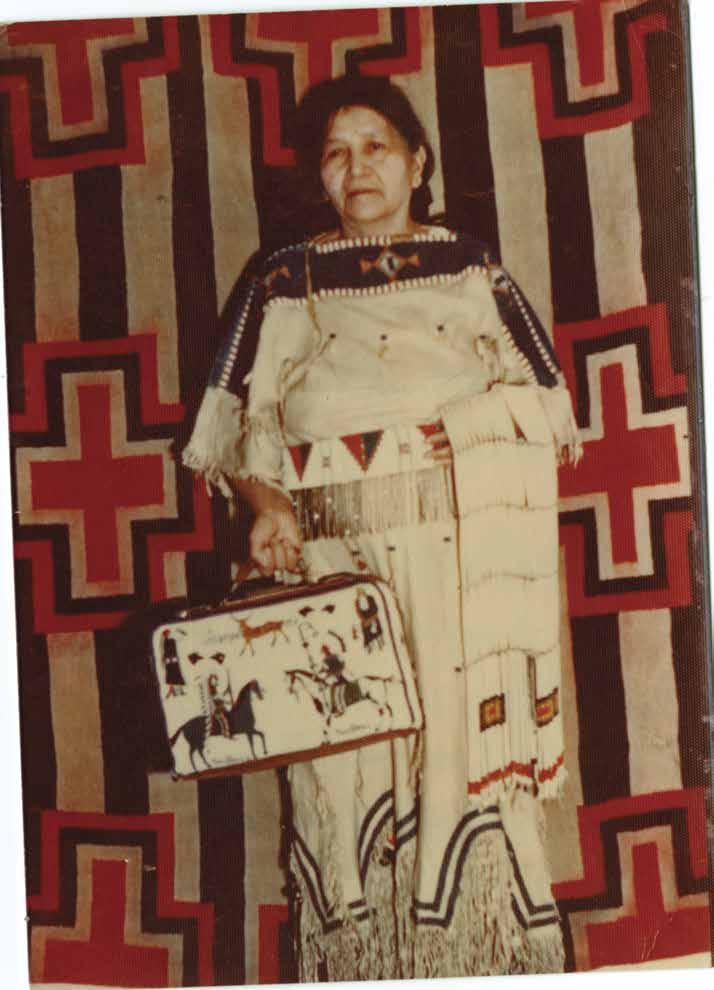
6 minute read
Dakota, or What’s a Heaven For?
Excerpted from Dakota, Or What’s a Heaven For by Brenda K. Marshall, published in 2010 by North Dakota Institute for Regional Studies. Copyright © 2010 by Brenda K. Marshall. Reprinted by permission of Brenda K. Marshall.
By Brenda K. Marshall
Advertisement
In Which the Relationship Between Dirt and Insanity is Clarified
Seated again, Alexander McKenzie reflected upon Mrs. Percy Bingham. Bingham was evidently a bigger fool than he had imagined if he didn’t know how to keep that woman by his side. When Percy had whined over his whiskey back in March that “a man needs his freedom,” McKenzie had expected to hear the old story of a man tied to a wife he could no longer tolerate. But as the night wore on McKenzie discovered that the wife was the focus of Percy’s anxiety, but not the cause itself. Percy Bingham, it seemed, was just a little boy who was still swinging at his daddy while held away at arm’s length. Thank God, McKenzie had thought to himself, that he had been born poor and had had the good sense to knock his own father down one day and set out to make his way in the world the next. Poor Percy Bingham couldn’t even figure out how to get his own wife out of his father’s house. Well, like most men who used those high-sounding words—freedom, honor, respect—what he really wanted was money. And for once, it couldn’t be his father’s. With enough money, Percy had said, he could provide his wife and son with a proper home, for it would be impossible to expect them to leave the comfort of the bonanza farm for a couple of rented rooms. With enough money, McKenzie had thought at the time, Percy Bingham was likely to drink himself to death just a little bit faster. But he would be useful in the meantime.
McKenzie liked to watch people, and he had seen lots of unhappy marriages. There were the couples who snarled and snapped, the ones whose iciness toward each other could give a fellow frostbite just by standing nearby, the ones who called each other by pet names while cringing to the touch, but he’d never quite seen a pair like Percy and Frances Bingham. They weren’t pretending to ignore each other. They just weren’t interested. Well, McKenzie was interested. There was something in the woman’s eyes. Something unsettled, not so much hungry as restless. Potential there, one way or the other, he thought, returning his attention to the conversation that had moved from the bonanzas of the Red River valley to points west.
“If I were a young man,” John Bingham was saying, “with a little money to invest, I believe that I would follow the lead of some of the fellows who have set up cattle operations north of the Mouse River.”
“Cattle bonanzas?”
McKenzie recognized the look on John Bingham’s face as he continued to speak of the growing opportunities to the west. It was the expression of a man invigorated by the vision of money to be made, even if it wasn’t a vision he intended to pursue. It could be a gold mine, or a cattle bonanza, or a recipe for a new snake oil. The elder Bingham spoke and carried himself like a much younger man, and McKenzie wondered for a moment if the son had more reason than he had mentioned to want his wife out of his father’s house. […]
“You were there yourself, were you not, Sheriff McKenzie?”
The discussion around the table had followed the Missouri south to Yankton and the destruction caused by flooding there, and from thence on to the business of the recent territorial legislature. McKenzie reentered the conversation easily.
“I was. Escorted a citizen of Burleigh County to the insane asylum. Sad case.”
“Male or female?” Dr. Harkness asked.
“Male. Why?”
“Professional interest only. No, thank you, Percy,” Dr. Harkness waved aside the bottle offered. “I am of the opinion that madness among men is far less prevalent here in the new Northwest than it is in the crowded and unsanitary cities back east. I have come to believe that the higher incidence of insanity in men there can be accounted for by a man’s constitutional need for space, whereas a woman is meant to live a life of relative confinement. Now, after almost a full decade in Dakota Territory where it has been my observation that the majority of our insane are women, I have deduced that this is simply the inverse of the cause for madness in men in tenements and slums.”
“Are you suggesting, Doctor,” Percy asked, although he appeared to be addressing his glass, “that a woman given too much space in which to move, who, shall we say, finds herself unmoored by the lack of proper boundaries and conventions, will go mad?”
“Not unless there is a weakness of mind to begin with, of course, but that is, I am afraid, too often the case. I see it over and over among the new settlers. The men are engaged in back-breaking labor from before sunrise to after sunset, day in and day out, with barely two pennies to rub together, and yet they look out upon the prairie as if reading a letter of promise. Whereas the women seem, well, they often seem confused and lost. Exposed, shall we say? Bluntly put, I sometimes fear for those who thrive as much as for those who do not. The Dakota prairie threatens to spawn a sexless, or rather, a more masculine, womanhood, with each generation more akin to her father than her mother. The very idea of survival of the fittest forces one to ask: fit for what?”
“A dreary prognosis, doctor,” Thomas Oakes said. “What does your wife think of your hypothesis?”
“I was speaking of the immigrant population, those who have little recourse to the comforts and diversions available to American women. As for Mrs. Harkness,” the doctor smiled, “she is willing to believe that the female population in Dakota is more inclined to madness than the male, but holds to a more mundane theory. Wind.”
“Wind?” Percy repeated.
“Or more precisely, dirt driven by the wind. Any woman would be driven mad, my wife claims, to find pillows of dirt accumulating upon the sill of a closed window, or to discover the white shirts coated with grime in the closet the day after washing, or—and this seems to Lydia to be the moment when all women in claim shacks must certainly go insane—to open the icebox to find even the butter blackened.”
Brenda Marshall was born on a farm in the Red River Valley of eastern North Dakota, and grew up climbing trees, riding her pony, and daydreaming under a wide prairie sky. She holds a Ph.D. in English, and teaches part-time in the English Department at the University of Michigan. Her first novel, Mavis, was published in 1996.
Dakota, Or What’s a Heaven For
Book Tour Brenda K. Marshall will be touring North Dakota, South Dakota, and Minnesota from late April to early June. If your book club, organization, bookstore or library would like to schedule a visit, please call 701.347.1878 or visit www.brendamarshallauthor.com










